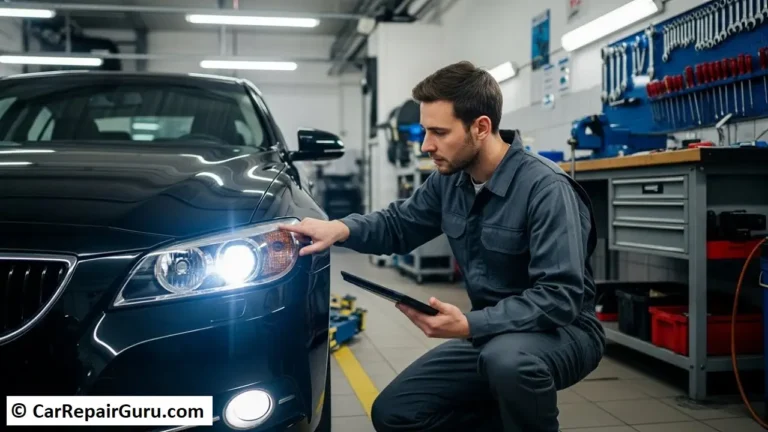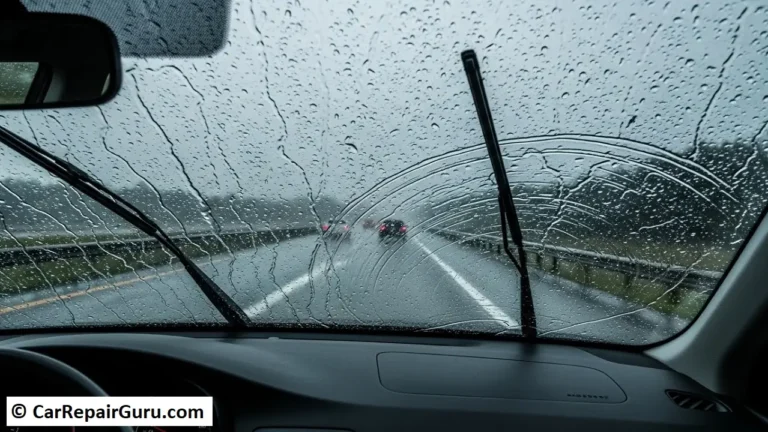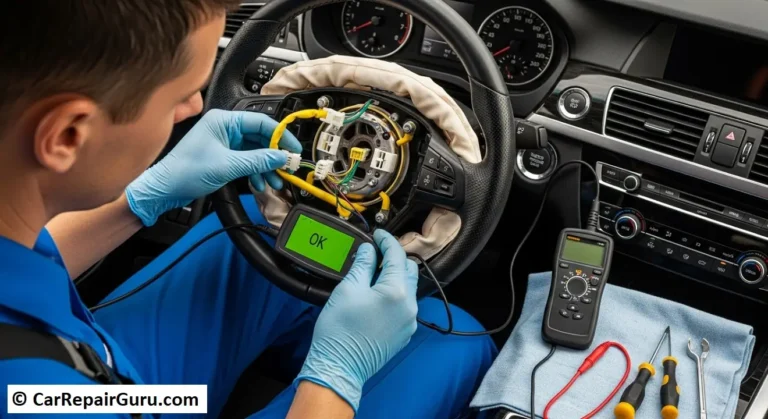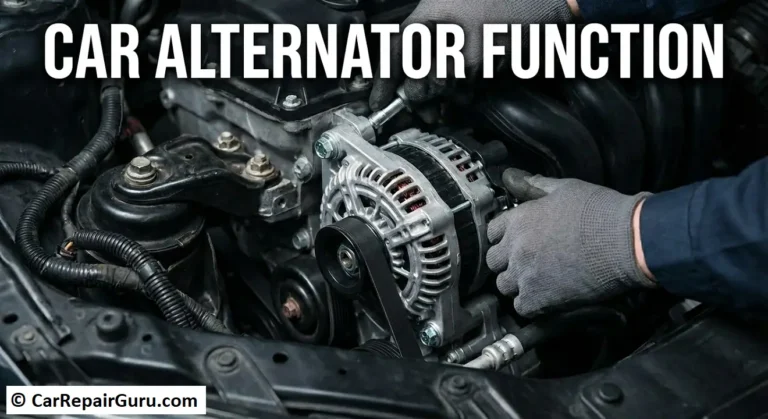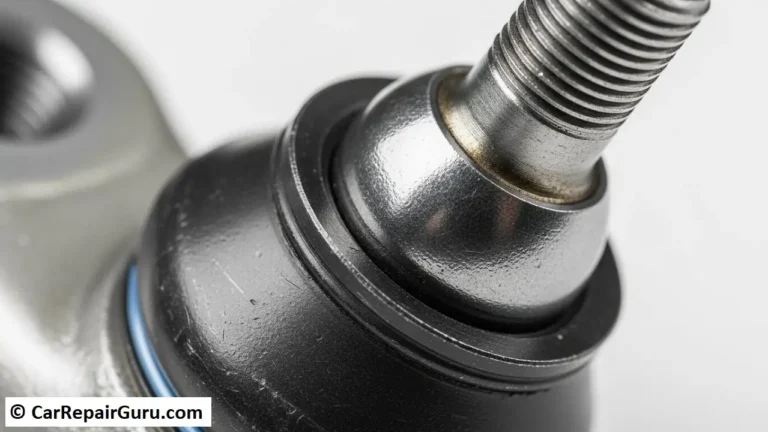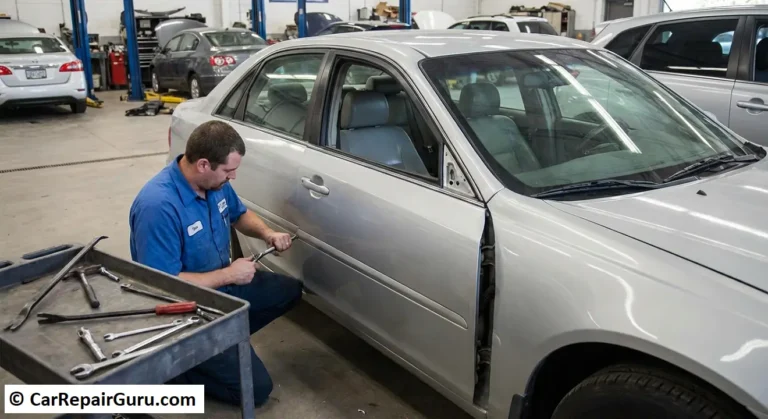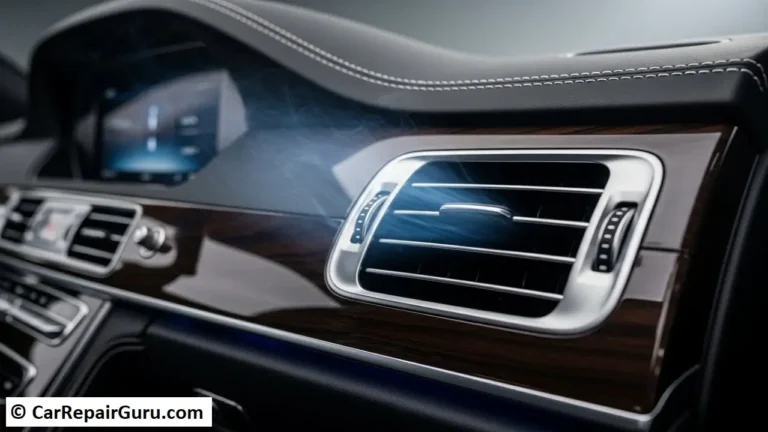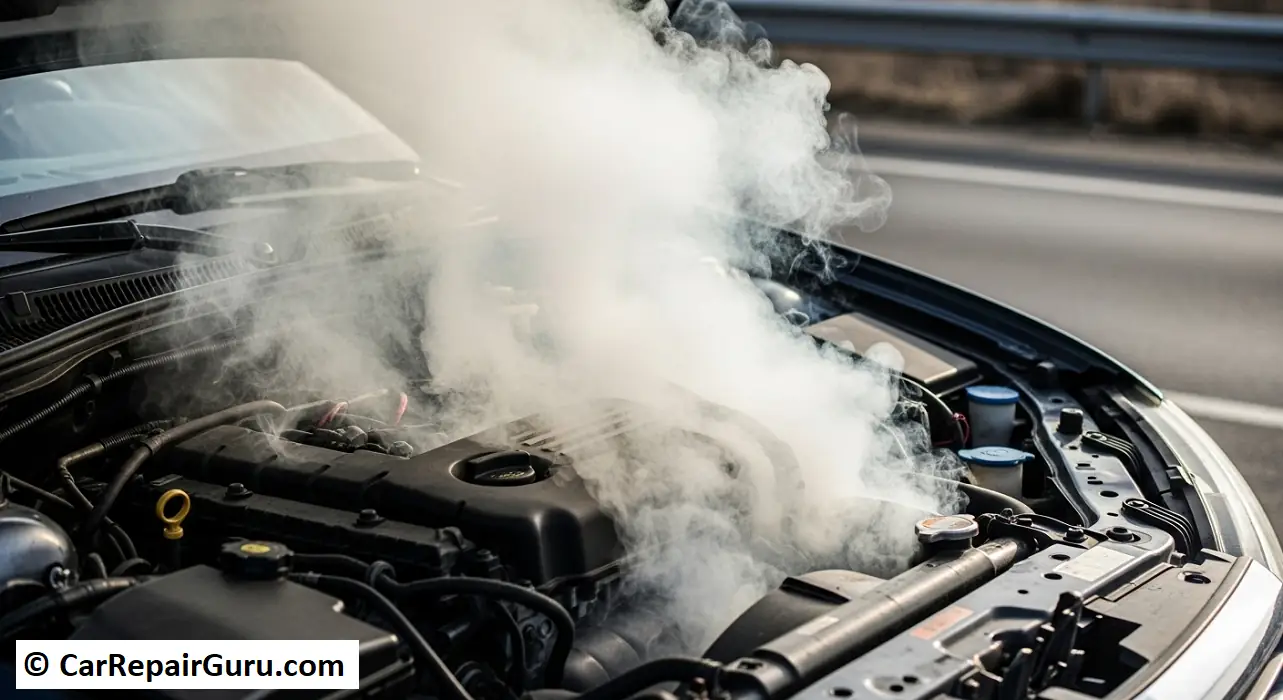
It’s a driver’s worst nightmare: seeing smoke coming from under your hood. While thankfully rare, vehicle fires are a serious risk that every car owner should understand. The good news is that most of these incidents aren’t random acts of bad luck. They are often the result of small, overlooked issues that grow into major hazards.
The single best defense against a car fire is proactive and consistent care. Understanding the most common car fire causes is the first step toward effective prevention. In this guide, we’ll break down the top five reasons a car might catch fire and provide a clear, actionable checklist for preventing car fires through smart maintenance and awareness.
Cause #1 – Faulty Electrical Systems
The number one culprit behind most vehicle fires is the electrical system. Modern cars are packed with miles of wiring that control everything from your headlights to your engine’s computer. This complex network carries a significant electrical current, and where there’s current, there’s heat. An electrical fire in car systems usually stems from a short circuit, where a live wire touches the ground and creates an intense, focused spark.
Common Electrical Issues That Lead to Fire
- Aged or Frayed Wiring: Over years of vibration and exposure to heat, the protective insulation around wires can become brittle, crack, or rub away. This exposes the bare wire, creating a perfect opportunity for a short circuit against the engine block or vehicle frame.
- A Faulty Battery: Your car battery is a powerhouse. If the alternator overcharges it, the battery can overheat, causing the sulfuric acid inside to boil and produce flammable hydrogen gas. A single spark from a loose battery cable or a short circuit can ignite this gas with explosive force.
- Poorly Installed Aftermarket Parts: That new sound system, alarm, or custom lighting can pose a fire risk if not installed professionally. Overloading a circuit, using the wrong gauge of wire, or creating a sloppy connection can easily lead to overheating and fire.
How to Prevent Electrical Car Fires
The key is regular inspection. During routine service, ask your mechanic to visually inspect the wiring, especially in cars over ten years old. Always trust a professional to install aftermarket electronics. Most importantly, pay attention to the warning signs: a recurring blown fuse, the distinct smell of burning plastic or rubber, or lights that flicker for no reason are all red flags that demand immediate attention.
Cause #2 – Leaking Fluids
Think of your car’s fluids as its lifeblood. Unfortunately, many of them are highly flammable. When these liquids leak from their designated hoses and reservoirs and drip onto hot surfaces in the engine bay, you have the perfect recipe for an engine fire.
The Most Dangerous Leaks
- Gasoline: This is the most obvious and volatile danger. Fuel lines and fuel injectors can develop tiny cracks or loose fittings over time. Since gasoline ignites at a relatively low temperature, a small drip onto a hot exhaust manifold (which can easily exceed 500°F) will catch fire almost instantly.
- Engine Oil & Transmission Fluid: While not as volatile as gasoline, these fluids can and will ignite when they come into contact with a scorching hot exhaust or engine block. A slow leak from a valve cover gasket or a cracked oil line is a common and serious fire hazard.
How to Prevent Fluid Leak Fires
Vigilance is your best tool. Regularly check your driveway or parking spot for dark drips of black, brown, or reddish fluid. Use your nose—a strong smell of gasoline when you haven’t just been to the gas station is a major warning sign. If you smell gas, pull over safely, turn off the engine, and investigate. During every oil change, have your mechanic inspect all fluid-carrying hoses and lines for cracks, blisters, or signs of seepage. Never ignore a leak, no matter how small.
Cause #3 – Overheating Engine and Exhaust System
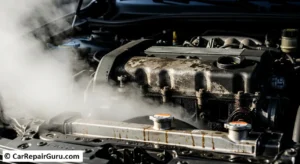
An engine that runs too hot can trigger a fire in several ways. The entire purpose of your cooling system (radiator, coolant, water pump, thermostat) is to keep the engine within its optimal operating temperature. When that system fails, temperatures can skyrocket.
How Overheating Leads to Fire
- Engine Overheating: A severely overheating engine can cause internal components to break down. Head gaskets can fail, pushing flammable engine oil and coolant out of the engine and onto hot exhaust components. The extreme heat alone can cause plastic parts in the engine bay to melt and ignite.
- The Catalytic Converter: This essential emissions-control device in your exhaust system operates at extremely high temperatures, often reaching over 1,200°F (650°C). If your engine isn’t running efficiently, it can send unburned fuel into the exhaust, causing the converter to get even hotter—hot enough to glow red. This superheated device can easily ignite dry grass, leaves, or road debris you park over.
How to Prevent Overheating Fires
Pay attention to your dashboard. Your car’s temperature gauge is a critical safety tool. If you see it creeping into the red zone, pull over as soon as it’s safe and shut off the engine to let it cool down. Regularly check your coolant level and ensure you follow your vehicle’s recommended schedule for coolant flushes. Finally, practice smart parking. Avoid stopping your car over tall, dry grass or piles of leaves, especially right after a long drive when the exhaust is at its hottest.
Cause #4 – Poor Maintenance & Design Flaws
This category ties all the others together and is a crucial aspect of car maintenance safety. Neglecting basic care allows small problems to fester and become serious fire hazards. What starts as a simple, worn-out part can lead to a catastrophic failure.
Common Maintenance-Related Hazards
- Forgotten Parts: Rubber hoses, seals, and gaskets don’t last forever. They become brittle and crack with age, leading to the fluid leaks we’ve already discussed.
- Accumulated Debris: Leaves, twigs, or even rodent nests can accumulate in the engine bay. This debris can act as kindling when it rests against hot engine components.
- Manufacturer Recalls: Sometimes, the problem isn’t your fault. A design or manufacturing flaw in a specific vehicle model can create a fire risk. These issues are addressed by official safety recalls.
Prevention Through Proactive Maintenance
The solution is simple: follow your owner’s manual. Adhere to the recommended service intervals for inspections, fluid changes, and part replacements. A trusted mechanic can spot potential fire hazards, like a decaying fuel line or an oil-soaked engine block, long before they become critical. Periodically check for safety recalls on your vehicle using your VIN on the National Highway Traffic Safety Administration (NHTSA) website. And never, ever ignore your “Check Engine” light.
Cause #5 – Collisions
While not a maintenance issue, collisions are a significant cause of vehicle fires and a key component of vehicle fire safety. The immense force of a car crash can turn a safe, contained system into a chaotic hazard zone.
How Accidents Cause Fires
An impact can rupture the fuel tank or sever fuel lines, spilling flammable gasoline. At the same time, it can crush the battery and sever electrical wiring, creating the sparks needed for ignition. This combination of spilled fuel and an ignition source is why fires are a major concern for first responders at an accident scene.
How to Minimize Risk
The best prevention is safe, defensive driving. Maintaining a safe following distance and staying aware of your surroundings can help you avoid a collision in the first place. If you are in an accident, even a minor one, it is critical to have your vehicle thoroughly inspected by a professional. Hidden damage to fuel or electrical systems could create a fire risk days or weeks after the crash.
What to Do If Your Car Catches Fire – A Step-by-Step Emergency Plan
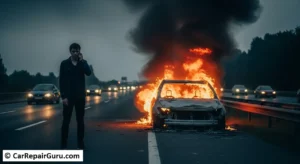
If the worst happens, your calm and swift actions can save lives. Follow these steps:
- Signal and Pull Over: As soon as you see smoke or flames, signal and pull over to the side of the road as quickly and safely as possible.
- Turn Off the Engine: This is crucial. It stops the flow of fuel from the tank and cuts power to the electrical system.
- Get Everyone Out: Evacuate yourself and all passengers from the vehicle immediately. Your life is infinitely more valuable than any personal item.
- Move Far Away: Put at least 100 feet between you and the burning vehicle. Keep yourself and others away from traffic.
- Call 911: Report the fire to emergency services immediately.
- DO NOT Open the Hood: Never attempt to open the hood or trunk if you see smoke coming from it. A sudden rush of oxygen can cause a “backdraft,” turning a small, smoldering fire into an uncontrollable inferno. Leave firefighting to the professionals.
Your Best Defense is Good Maintenance
As we’ve seen, the root of preventing car fires is directly linked to diligent and professional car care. From the electrical system to the fuel lines, every part of your vehicle needs to be in good working order to ensure your safety on the road.
At Car Repair Guru, we believe knowledge and proactive maintenance are your best tools for a safe and reliable vehicle. Don’t wait for a warning sign like smoke or a strange smell.
Frequently Asked Questions about Preventing Car Fires
What is the leading cause of car fires?
The leading cause of vehicle fires is a failure in the electrical or mechanical systems. Most incidents stem from issues like frayed wiring causing a short circuit or flammable fluids like oil and gasoline leaking onto hot engine parts.
What are the main warning signs of a potential car fire?
Key warning signs include a strong smell of burning plastic or rubber, recurring blown fuses, and visible smoke from under the hood. A rapidly climbing temperature gauge on your dashboard is also a critical signal to pull over immediately.
Can a car catch fire when it is turned off?
Yes, while rare, a car can catch fire when parked and turned off. This is typically caused by an electrical short-circuit, faulty wiring in aftermarket accessories, or a fluid leak dripping onto a still-hot exhaust component.
What should you do first if your car is on fire?
Immediately pull over to a safe location, turn off the engine to cut fuel flow, and get everyone out of the vehicle. Your first priority is to move at least 100 feet away from the car and then call 911 for help.
Does regular car maintenance help prevent fires?
Absolutely. Routine maintenance is the single most effective way to prevent car fires. Professional inspections can catch frayed wires, fluid leaks, and failing parts before they become serious fire hazards.
